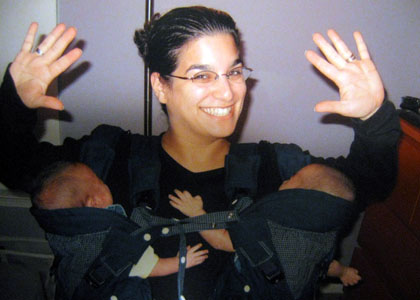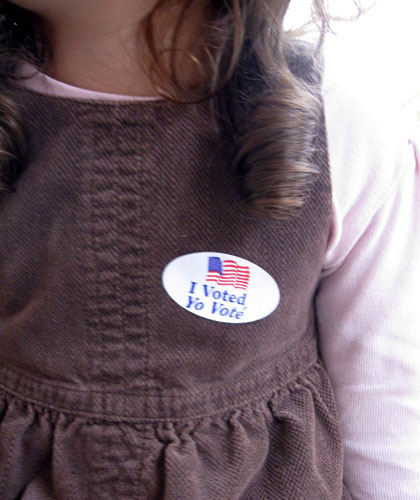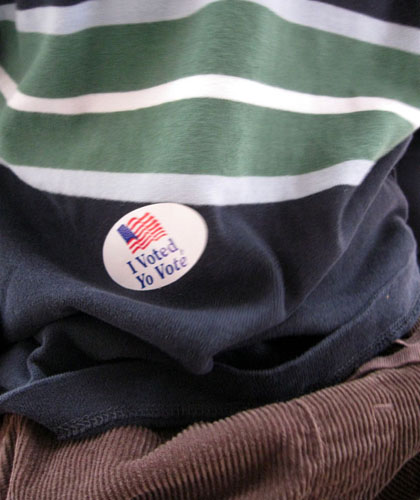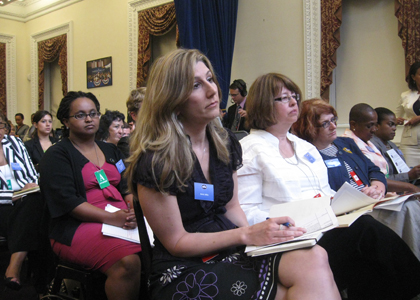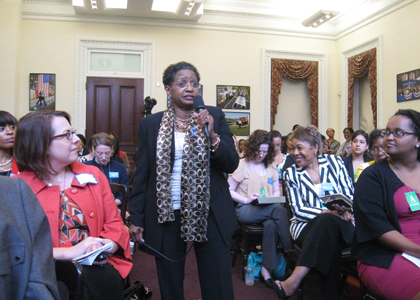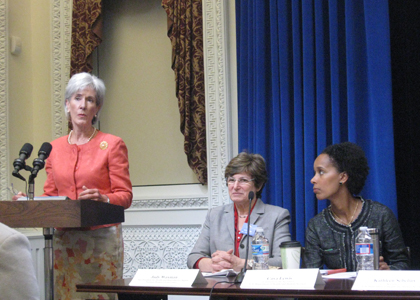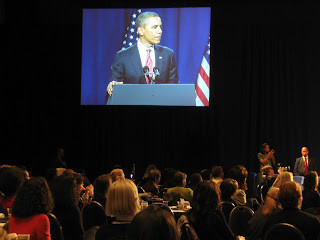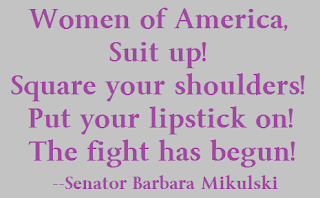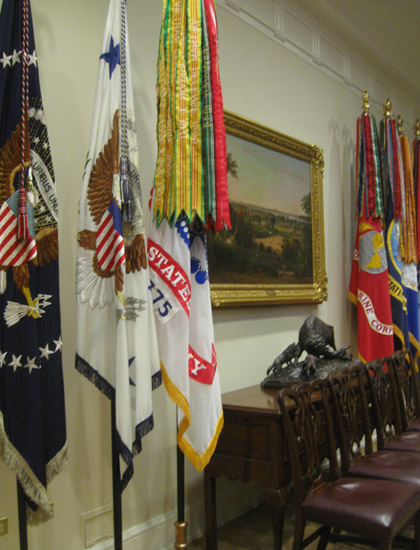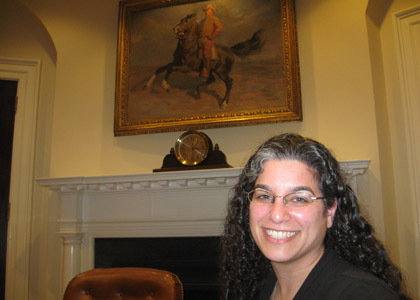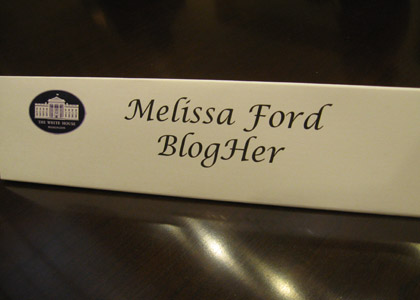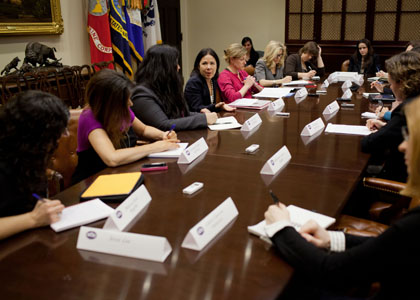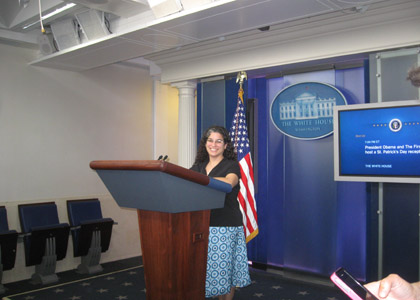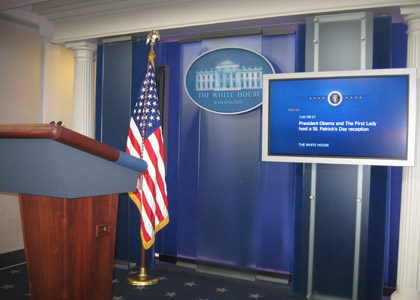Category — Politics as Usual
Please Vote
Please vote.
Please make sure you’re registered to vote by going to Gottavote.com and clicking on your state. The site is run by the Obama campaign, but you do not need to be a Democrat to use it. In the spirit of fairness, if Romney’s campaign had a comparable website created to ensure that every person in America could vote, I would link to it too. But they don’t. So, Romney people, if you create one to make sure that all people are able to vote (and this offer goes to every other candidate for president), let me know and I’ll link to it*.
If you’re not registered to vote, please register to vote. You can go to Gottaregister.com, which is an open voter registration site run by the Obama campaign (again, if there was anything like it out there for the other candidates, I’d link to theirs too).
Once you know you’re registered to vote, go to your state on Gottavote.com and see if you have early voting (which will ensure that you’re not scrambling to vote on Election Day). Look and see what you need to bring with you to the polls. Find out what time the polls open and close in your area.
Which brings us back to that simple request at the top of this post: please vote.
It’s something we get jaded about, that we sometimes think of as a burden, that we think doesn’t matter, that feels like a waste of time, that we take for granted. Do it anyway. It is a tool you have right now to get your voice heard; don’t throw it away. And no, I’m not going to guilt you by pointing out all the places in the world where people are fighting for the right to vote — a right you have. Instead, I am simply going to implore you, in my big girl voice, in the most serious tone one can muster when they are writing this at the kitchen table in lime green sweatpants and a mismatched greyish blue March of Dimes sweatshirt.
Please vote.
Tomorrow is National Voter Registration Day in the United States (apologies to all outside the US). You’re going to hear this message a lot in the next 24 hours (the “please vote” part; not the apology to all outside the US). Please don’t tune it out. Regardless of your political affiliation, please take the time to educate yourself and make the commitment to vote.
I’ll see you at the polls**.
Okay, I know that I said I wouldn’t guilt you, but as you go through late October when early voting begins until we hit the time the polls close on November 6th, I want you to imagine me hovering behind you as you go about your day, breathing on your neck as you try to read the nutritional information on a label in the food store, staring at you while you try to type a blog post, lying in bed between you and your partner, turning my head from side to side so I can give both of you my guilt-inducing look. All the while, a single request on my lips that will haunt you until the election is over.
Please vote.
* But in my very biased opinion, the fact that you don’t have something comparable out there speaks volumes.
** I probably won’t see you at the polls unless you live in my neighbourhood. And even then, I’ll only see you if we go at the same time. And even then, once we disappear into those tiny polling booths, we won’t really be able to see each other. But I’ll figuratively see you at the polls.
September 24, 2012 11 Comments
So I’ve Been Sitting on Some News
A few weeks ago, I was approached by the Obama campaign to contribute blog posts for their new Parents for Obama site though I haven’t said anything until now. It is a huge honour to get to share my thoughts on the upcoming election with the general American population, and the twins have been equally excited to get to contribute their story to the re-election campaign. We’re an Obama family, and it is uber-important to me that we’re volunteering as a family to get Obama re-elected. Though, I will say that some days I can’t tell if the ChickieNob is volunteering because she wants Obama re-elected or if she thinks that by attending things with me, she has a chance to one day be invited by Sasha or Malia to play on the White House swing set.
I am going to cross-post most of my election posts here for posterity (which is a fancy way of saying that I’m really afraid that I’ll one day forget things if I don’t slip them into our written record), but you can read them on the Obama site too. Regardless of your politics, I hope you’ll find the posts meaningful or funny since creating a politically-conscious child crosses all party lines.
So… enjoy!
Why I Take My Children to Vote
The first time I ever voted was in my first grade Weekly Reader, a 4-page mini newspaper that was distributed in public schools in my state. President Carter was up against Ronald Reagan, and I took the casting of my vote very very seriously; so seriously that I remember going around to ask adults why in the world anyone would not vote for someone who had been a peanut farmer. I literally couldn’t fathom a world where actor trumped peanut farmer, and I just wanted to check that I wasn’t missing something before I took my pencil and put a big X in the box next to President Carter’s name. He won in our class by a landslide.
I grew up in the Washington, D.C. area, a highly-politicized area where friend’s parents worked in government and classmates came and went as administrations turned over. Discussion of political issues was commonplace; we lived in the nucleus of the American political cell, the ideas of the time written into our DNA. My parents explained the main issues in child-friendly terms, and I was always aware of their political beliefs while they left me room to develop my own.
And then I had my twins.
The first time I took my twins to vote, they were a few months old. Both were on heart monitors that could be carried over my shoulder like a large plastic (albeit very expensive) handbag. I popped them in my Maximom, a twin baby carrier, so I could walk down to the local elementary school to vote in the Kerry/Bush election. I looked like an opossum carrying my young, gathering like-minded politicians who would represent my ideals in Washington instead of acorns, but I really didn’t care if I could barely see over their bald heads to cast my vote or that we were eliciting many strange stares at our get-up. I felt like I was honouring my parents, honouring all the work they did to raise a politically aware and socially active daughter, when I took my children with me to vote.
My husband and I have carried on the work our parents instilled in us by talking about the issues in age-appropriate ways with the twins. They knew exactly what was at stake with the last election, how much this country needed change. I almost considered getting babysitting for them when I heard about the unusually long lines at our polling place, but they promised to behave, and mostly did except for the moments when they swung their four-year-old bodies from the stairway railing and then climbed up to a landing to call out to the crowd as if they were emcees pumping up the crowd before an event: “Mommy is an Obama Mama Mama Mama! Are you an Obama Mama Mama Mama?”
When we went into our voting booth, I held each of them up so they could vote. One child touched the box next to Barack Obama’s name, and then I set them down and erased the vote to prepare the screen for their twin. My second child touched the box, and I set them down, erasing the screen a final time so that I could vote too. And I started crying as we all hit submit together because this was living history. My children will be able to tell their children that they voted for Barack Obama in the first election, that they brought that change to this country.
And they got it, they understood how much change could come from a presidential election. They stayed up and watched election coverage with us that night, and when Barack Obama became the President Elect, we went into their room and whispered the news into their sleep-warm ears. I picked them up early from preschool to watch the inauguration on television, jumping up and down on my bed when he was sworn in as president. We shared that celebratory moment as a family.
And now we’re sharing the re-election work as a family. Our twins know that their parents are volunteering to get President Obama re-elected, and they’ve said they want to help out too. They want to write about the election, go door-to-door canvasing, and attend rallies. We talk about marriage equality, health care coverage, and electoral law. Instilling a sense of social action in my children is one of the most important lessons I can convey because it extends beyond the election to teaching them how to be a self-advocate, how to be empathetic and aid others, to find what they care about and make change in this world.
This election is not just about this election when it comes to our children; it’s about taking to heart the First Lady’s It Takes One campaign and understand that it is our job to build the next socially-conscious generation, that we raise a group of people in this country who answer every issue with an “I care” instead of a shrug. When we take on the job of parent, we take on all the responsibilities that come with parenthood including raising our children to contribute to society.
And all of that starts with empowering our children to understand they can be part of this vote.
August 7, 2012 34 Comments
Supreme Court, Affordable Care Act, and Infertility
While the Supreme Court discussed the fate of the Affordable Care Act, the White House continued the work of implementing the law, knowing that to pause to wait for the ruling would mean losing out on precious minutes for keeping to the timeline that runs until 2014 when the entire law comes to fruition. The Department of Health and Human Services, headed by Secretary Kathleen Sebelius, held a Women’s Health Town Hall at the White House last Thursday, bringing together about one hundred people in the building (and many more online) to discuss the state of health care in America. And when I say, “bringing together about one hundred people,” what I really mean is that they brought together about one hundred women.
In other words, the group brought together to discuss the state of women’s health in our country was comprised almost entirely of women.
If there had been a town hall for men’s health care (which would have just been called… health care town hall), I have a feeling the room would have been a little more mixed. Of course BlogHer would have sent a woman to cover it — we’re a women’s online site — but what reason does every other media outlet and health organization have for sending a woman? Because only women are interested in women’s health? That if we’re going to be discussing women’s bodies, only women are interested in discussing them? (Except for the times when men want to make laws concerning our bodies; they seem happy to talk about my uterus then.) The panel was 100% female, the room was almost 100% female.
It was just a lot of women talking about the state of health care for women. And while men are always around when they want to put limits on women’s health care coverage or limit what women can do with their bodies, here they were quite plainly absent. Where were the men?
No, seriously, where were the freakin’ men?
Our health certainly affects men. The financial side of our health care certainly affects the men in our lives. If we don’t take preventative measures to protect our health, our illnesses certainly affect the men in our lives. If we stay out of the work force because we don’t have adequate support in balancing work and parenting, or if we lose work time due to health issues, it certainly affects men. So it was incredibly distracting, and frankly, disheartening, to see the room entirely filled with women.
Because women’s health affects everyone, just as men’s health affects everyone, and we need to start looking at health care as health care instead of looking at women as a separate entity from humankind who should be subjected to different rules and regulations.
Men, show up when we’re discussing keeping us well and not just when we’re discussing holding us back.
That said, it cemented in my mind something that has always bothered me about lobbying and infertility — or, for that matter, public opinion and infertility. The people who care about infertility are those who are directly affected by infertility. It doesn’t matter that such a large percentage of the population is affected by infertility (12.5% of child-bearing age) that there is a good chance that someone you care about is affected by the disease, in the same way that men are obviously affected indirectly by the health of women, even if they’re not directly affected themselves. People don’t show up, don’t listen, and don’t care if it’s not about them. I found that attitude sometimes in the lawmakers I met on the Hill when I went for Advocacy Day. And that’s also the attitude I see every day in the world — either you’re affected by infertility and then of course you show up to talk about it. Or you’re not affected by infertility and the idea of actually pausing to talk about infertility and learn about it is practically self-verboten. People almost don’t want to learn about what affects anyone else, as if we pride ourselves on remaining unknowledgeable. At least, that’s my take-away from the comment section of the New York Times.
I don’t expect non-infertile people to step up to do the education, but I expect them to show up and listen, especially when they voice their opinion so loudly on infertility issues. In the same way that I don’t expect men to step up and educate the public on women’s health, but I expect them to show up and listen when we speak, especially when they voice their opinions so loudly when it comes to covering contraception and abortion rights.
Towards the end of the meeting, I asked Sebelius what could be saved from the law if the Supreme Court overturned it? What strides forward would still be in place, and what would be lost? And the answer was all of it. All of it. I repeat that because I don’t think people truly understand what that means in terms of practical life. You know how your workplace has to legally give you a place and the time to pump breast milk? If it’s overturned, they won’t. You know how one million women who were denied health insurance prior to this point due to a preexisting condition were able to get health insurance because it became illegal to deny coverage to someone for a preexisting condition? They will lose their insurance, and you will go back to picking up the cost for their health care usage (since part of medical billing covers the fact that some people won’t pay). People who made decisions based on the fact that there was a removal of a lifetime insurance cap will now be screwed because all those medical charges will once again count towards that lifetime cap.
And, again, this made me think about the way it’s one step forward two steps back when it comes to popular opinion on infertility and the media. We work so hard to convince those around us the reality of infertility and loss, and then a story such as Octomom comes out or an expose on surrogacy, and it feels like we’re not only starting over from scratch, but we’re actually farther behind from where we began because we thought we were getting somewhere.
This isn’t a post about politics; this is a post about humanity. About people showing up to discuss women’s health, as opposed to only women showing a vested interest in our well-being. This is about the media educating rather than trying to drum up a sensational story to sell issues. This is about asking others not to undo the hard work we do in creating change. This is a post about giving a fuck, even when you’re in a position where you technically don’t have to give a fuck. Because today your situation looks like this; but tomorrow may look very different. And when we only listen, when we only care, when we only pause to hear someone out when we’re directly affected, we can’t complain in the future when we find ourselves in a situation we never thought we’d find ourselves in and no one cares about us.
Go out today and care about someone else’s issues. Listen to them even if you don’t have to. Not because you’re going to get anything out of it yourself, but because understanding is what separates us from other animals.
Makes us human.
*******
If you want to watch the town hall, it was livestreamed on the White House site, and they uploaded it to their channel on YouTube. I asked my question around 1:22:50.
June 11, 2012 16 Comments
Suit Up: It’s Time for the Women’s Revolution
I used to teach a women’s studies class to middle schoolers at a progressive school. We had an ongoing project called Powerful, Positive Women where the girls researched and presented a woman each day to the rest of the class. Sometimes these were well-known women such as Hillary Clinton and sometimes they were neighbours or aunts or grandmothers who had impressed the girls for one reason or another. That was the beauty of the project – it taught the girls that all women are powerful and have the potential to make positive change in the world.
On Friday, I attended part of the 18th Annual National Issues Conference held by the Democratic National Committee’s Women’s Leadership Forum (hence why the Roundup was so late. I was totally sidetracked in the morning before I left by the nonuplets). I was there to cover the President’s remarks at the end of the day but arrived early in order to hear some of the speakers. It was the best example of the personal becoming political, with each speaker drawing from their life in order to explain why this upcoming election matters.
The focus was women’s issues and the speakers primarily women prior to the President taking the stage. The topics ranged from health care to economics to education, with each topic building on the next. At our most basic level is the body and our need to keep it healthy. Adding to that is economics, our work, and our usage of said body to contribute to society. And lastly, the mind is necessary to nurture if we want to keep making great strides in STEM fields.
I found myself wishing that the ChickieNob was there, not that she would have understood the issues at seven years old (and more likely than not, she would have zombie walked), but to have felt the energy of the space. The room was filled with emotion because politics touch on emotional issues: our ability to take care of ourselves and our communities. The world we wish to leave for future generations. It was impossible to hear all of those powerful, positive women speak and not be moved to tears as Lilly Ledbetter discussed the role her personal work experience played in moving towards equal pay for all women. Or when Debbie Wasserman-Schultz vowed that when it comes to women, no one will outwork us.
With sponsorship from the Democratic National Committee as well as the group Women for Obama, there was an obvious partisan lens through which the view point was filtered, but that doesn’t negate the strides the Obama Administration has made on behalf of women. The Affordable Care Act has brought health care services to 45 million women. He signed into law the Lilly Ledbetter Fair Pay Restoration Act ensuring women receive equal pay for equal work. He has forced employers to create space and time in the workplace for expressing breast milk for breastfeeding mothers. And he didn’t just recognize women as part of a campaign slogan — he appointed eight women to cabinet-rank positions, appointed a woman to be third in command of the country, and nominated two women to the Supreme Court (a branch of government which has only had four women total in its 220 year history).
All of that was on my mind as Senator Barbara Mikulski took to the stage to introduce the President.
It is fitting that Senator Mikulski preceded the President before he spoke about women’s issues because she is not only the longest serving female member of Congress, but she is the first woman elected to the Senate (others served before her, but they succeeded a male family member such as a husband). In her first of many rallying cries, she told the crowd,
I didn’t want to be the first… I wanted to be the first of many!
She explained that women who want to run for office need a “MOM”: money, organization, and message. And she empowered the women in the audience to get involved, using the story of the Lilly Ledbetter vote to rile up the crowd. Back then, when it looked as though the bill wouldn’t pass and women would once again be paid unequally for the same jobs performed by men, she drew from the strength of her fellow female Senate members and told her supporters,
This is an Abigail Adam’s moment. We’re going to start our own revolution. And I said, “Women of America, suit up! Square your shoulders! Put your lipstick on! The fight has begun!”
What was true then is obviously still true now as she continued to speak about the idea of caring for women; of showing women and children that their country — not just their families — love them. In a moving twist on the popular put-down, ObamaCare, for the President’s health care plan, Mikulski admits that she likes the term.
I love the word Obamacare because our President does care.
Soon after, the President took to the stage not to look back at his accomplishments so far, but instead to discuss what still needs to be done. In fact, his only reference to his accomplishments was to point out that the fact that his first law passed directly applies to women, serving as proof of his commitment to women in America.
And as long as I’m President, we are going to keep moving forward. You can count on that. You don’t have to take my word on it – you’ve got my signature on it. Because something like standing up for the principle of equal pay for equal work isn’t something I’m going to have to “get back to you on” – it’s the first law I signed.
He pointed out that though we are sometimes discussed as such, women are not an interest group.
Women are not an interest group. Women shouldn’t be treated that way. Women are half this country and half of its work force. You’re 80% of my household if you count my mother-in-law… and I always count my mother-in-law.
And in saying this, pointed out how there are no such things as “women’s issues” because what affects women affects many other people. If we don’t earn enough money, we’re not spending it in stores, and therefore, equal pay is an economic issue, especially for businesses. If we have discrepancies in health care coverage, it affects the people who depend on us, becoming a family issue.
His understanding of the bandwidth of women comes directly from observing his wife, the First Lady, as they tried to balance raising their daughters with two careers.
Once Michelle and I had our girls, we gave it our all to balance raising a family and chasing a dream. And it was tough on me, but let’s face it, it was tougher on her. I was gone a lot. I know that when she was with the girls, she would feel guilty that she was giving enough time to work. When she was at work, she’d feel guilty about not having enough time for the girls.
After the speech, I rode down the Convention Center escalator with some of the several hundred women who attended the conference. One mused that her take away from this day was that nothing has changed from who Obama was in 2008 to who he is today. “He hasn’t changed one bit. He still has that lovely energy,” she commented before we parted ways.
But my takeaway from the conference was that women’s issues are important because they affect the very fabric of our society. That America will come apart if we ignore the needs of 50% of the population. But more important than that, every single woman has the ability to make a difference. Every single one of us has a vote, and we need to use it to support the candidate that best represents our vision for America. And more than that, we are all powerful, positive women, and we all have a unique voice to add to the whole.
In the words of Senator Mikulski,
How will you get involved in this upcoming election?
Cross-posted with BlogHer
April 30, 2012 8 Comments
Thoughts from a Second Trip to the White House
About a week ago, I received an email from my editor at BlogHer: could I go to the White House for a meeting on Tuesday? I checked my calendar, sent in my security details, and spent the weekend reading up on the issues surrounding the Affordable Care Act. I had another big project I was putting to bed at the same time, so perhaps my attention was focused on finishing that, but I didn’t feel nervous at all.
Until Monday.
I woke up with my stomach flip flopping around. Tums-munching-yoga-can’t-help-this flipping around. I put my other project to bed around 10 pm that night, and without a distraction, the flip flopping only increased until it felt like I had a trout at the end of the line inside my stomach, dying frantically on a pier.
On Tuesday, I woke up, the fish still strongly fighting his swim to the bright white light. (I have to assume that while humans walk into the light when they die, that fish either swim or flop there.) I went to yoga, came home to have a yogurt, read some last documents I wanted to get through, and then headed downtown. If you recall last time, I had to pee quite badly AND was nerve-wrackingly late. This time I left an insane amount of time to get down there so when I hit Meridian Hill and saw that I had almost two hours until the meeting, I said to myself, “this is what it feels like to not be strangled by your clock.” It was a strange, wonderful feeling. I wish I were better about time and could experience that more often.
I hung out at Josh’s office for a bit and then he drove me over to the White House, by which I mean he dropped me off by the park and I felt like a little kid getting out of her dad’s car on the way to the party.
As I went through security and grabbed my visitor badge and headed past the guard into the West Wing, I kept saying to myself, “these people are just people. They are human, just like me. This is their job, I do my job. But at the end of the day, they are all simply jobs and we are all simply people.” It’s a nice little mantra. The reality is that while I’m a Juddhist in practice (you know, a Jewish Buddhist), I am a Quaker in mentality. I don’t believe in elevating people in importance any more than I believe in demeaning people (aren’t they just two sides of the same coin). Though sometimes I forget that and get all ga-ga, like… you know… being around people in the White House.
I sat in the waiting room with the ten other women and thought to myself, “this building is just a building. It is no different sitting in your home or sitting in the dentist’s office or sitting in the West Wing. They are all simply buildings made of the same materials such as concrete and brick and mortar.”
This mantra didn’t really work.
Actually, do you know who it was nicest to see there? Sarah, who works in the Office of Digital Strategy. It was more meaningful to me, personally, to see her. I believe that if Dorothy had the chance to go back to Oz, she’d want to see the Scarecrow ten times more than she’d want to see the Great and Powerful Oz. I mean, yeah, the wizard was cool (okay, so he turned out to be not so powerful, but you know what I mean), but the Scarecrow had been with her on the journey. And last year at the Women’s Summit, Sarah was the person who was with us the entire day, who communicated with us beforehand and afterward.
So one of my favourite parts of the day was talking with Sarah before the meeting. I told her that the Wolvog had played President Obama in the school play last month, a parade of famous Americans spanning about 400 years of history all coming together for a ball at the White House (please don’t ask how Betsy Ross and Michelle Kwan could both be at the White House as the same time). I discovered the night before that he had outgrown his button-down shirt, so the Wolvog’s Barack Obama was casual in a navy blue polo shirt. The ChickieNob wanted the part of Michelle Obama, but it went to another girl, a fact that she will be thankful for years from now when she realizes how creepy that would be to be married to her brother in the school play.
And then it was time to go inside the Roosevelt Room.
I loved seeing the East Wing last time, but maybe it was more special to be in the West Wing because it’s generally not accessible to the public. Or because it’s a space of action; where policy is discussed and created vs. the other side of the building which leans heavier towards entertaining. My heart was pounding entering the Roosevelt Room, a room that comes with an enormous history in tow. It was the former presidential office. Think of the meetings that have happened in that place.
Our name cards were already set up around the table, and my seat was directly in front of the door which was directly across from the Oval Office. Meaning, the brown door opened into the hallway and on the opposite wall of the hallway was the white door of the Oval Office. I was about twenty feet away from the Oval Office the whole time. Heady!
But think about all the people who have sat in those chairs. All the presidents. All the staff members. All the visiting heads of state from various countries. Think about what has taken place in that room, the enormous moments. I know I said it’s just a building, just like every other building, but it was as if my inner teenager was holding her hand over my inner Quaker’s mouth, silencing her for the moment.
Being in that room was like stepping into the Sistine Chapel. I was obviously in the Vatican to see the chapel, knew I would encounter it at some point as I walked through the building, but when I stepped inside and tilted my head back to stare at the ceiling, I was dumbfounded that I was in that space, seeing it with my own eyes. That I was across the world, standing under the hand of G-d. And that was what it was like to sit down in the Roosevelt Room. I knew that was where we were ending up for the meeting, was well aware that I would encounter it while in the West Wing, but I sat down dumbfounded, not believing I was seeing that space with my own eyes.
That sliver of door frame behind me? That’s the brown door through which you can get to the Oval Office.
The topic for the roundtable discussion was the Affordable Care Act, a topic near and dear to my heart both as a health writer (I think after writing Navigating the Land of If and a bunch of articles, I qualify as a health writer, right?) and as an average US citizen.
We watched an episode of House last week (we’re on the second season!) where House told a patient without insurance that he was dying, but he wasn’t going to put down the diagnosis in his file because it would be a pre-existing condition stopping him from ever getting insurance. The boy ran out of the examination room to go get insurance before returning for the diagnosis and treatment (though, House, that trickster, lied to him because he wanted him to get insurance. The boy only had a cold). My thought as I watched that episode: Americans no longer have to live like this.
We no longer have to freak out that our insurance is going to drop us or refuse to cover something because it’s a pre-existing condition. In the future, we’ll no longer experience discrimination in the form of gender rating, the practice of charging women more than men for the exact same insurance when they have similar profiles. We have free preventative care. It’s an amazing leap forward from what we had before.
And it’s a law, not a pu-pu platter, which means that even if you don’t like everything within the law, we can’t pick and choose what we want out of it. It saddens me when people throw out the baby with the bathwater when it comes to the Affordable Care Act. 45 million American women had access to preventative care last year. That is a major accomplishment. How many problems were found in their beginning stages so they could be treated with less expensive and invasiveness? Some people are so focused on protesting the coverage of contraception that they fail to notice the coverage of breastfeeding support which all comes with the law (“employers to provide reasonable break time and a private, non-bathroom place for nursing mothers to express breast milk during the workday, for one year after the child’s birth. The new requirements became effective when the Affordable Care Act was signed into law on March 23, 2010”).
There are really really good things coming from this law including access to health-saving measures such as mammograms, and frankly, I’m worried about the upcoming election and the possibility of losing the gains that were made. I don’t think many of us can stand to lose the gains that have come with the Patient Protection and Affordable Care Act. I know that I can’t.
Deputy Chief of Staff Nancy-Ann DeParle and Deputy Assistant to the President for Health Policy Jeanne Lambrew hold a roundtable discussion on the Affordable Care Act and how health reform is benefiting women with representatives from leading women’s online publications in the Roosevelt Room of the White House in Washington, D.C., March 20, 2012. (Official White House Photo by Sonya N. Hebert)
On a totally vain side note, that’s me in the bottom left corner. You can see me ardently taking notes. With my orange iPad out to record the meeting. Hey, I said it was a totally vain aside.
I unpacked more of the logistics of the meeting over on BlogHer. I hope you’ll go over there and tell your story.
When the meeting was over, Jesse walked us through the West Wing, so we could see the offices (though the door to the Oval Office was closed) and photographs. We walked outside, past the cherry blossoms on the lawn.
Then we stepped into the press briefing room. We were snapping pictures when someone said we shouldn’t take pictures. So I slipped my camera back into my purse with an apology. Then he said, “you shouldn’t take pictures until we turn on these lights!” He lit up the stage, the reporters waiting in the room totally bored as we all went up to the podium and snapped each other’s picture. Jesse was patient and amused, as if this was the best part of the job: seeing what a mushy, happy mess we became as ordinary citizens entering this extraordinary space.
Now you see me…
Now you don’t…
And then it was time to go. We had to wait by the White House gates for an additional few minutes while the Irish motorcade went through. And then they opened the gate and we passed back into the normal world with all the other people milling on the sidewalk, part of school trips and tourist groups. A few of us stood around talking for another few minutes. A little boy climbing on the gate was yelled at by a guard, and the four of us all had the same parental protective reaction, especially once we saw the tears starting to well up in his eyes. He was excited. Listen, while I may have enough self-control to not climb the gates, internally, I was climbing the gates while I was inside the White House. I was giddy to be standing inside history.
I crossed the park and decided to walk all the way back to Josh’s office because the sun had come out and it was now a balmy 75 degrees with a light breeze carrying the scent of the ubiquitous, Washingtonian cherry blossoms. I almost never go downtown when the cherry blossoms are in season; it’s too crowded and they’re just a bunch of flowers, right? But then I found myself down there, seeing these gifts that came from across the ocean, and I wondered why I let myself miss this year after year. This is the Washington I love, the white marble buildings; the fact that any one of us can end up in the White House — either behind the Oval Office desk or as a visitor in the Roosevelt Room; the motorcades; the cherry blossoms. And I walked the many blocks to Josh’s office deeply in love with my city. I literally just fell in love again with my city.
March 21, 2012 39 Comments




